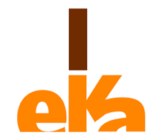[EN] You’re probably hearing and reading a lot about the word “burnout” in the corporate context lately. The pandemic and the rise of remote work have reignited conversations about mental health and well-being in organizations.
Corporate sustainability is also a trending topic, with many companies striving to be sustainable both in terms of human resources and the environment.
And then there’s the return to the office, which is pushing companies to organize team-building activities to boost both motivation and productivity among their teams.
Do you really know what burnout is and how it can be prevented? Is it possible to combine high productivity with the well-being of workers and teams? What tools can a company use to become more sustainable at a human level?
In two articles, we will answer these questions and provide practical insights to help leaders and teams achieve productivity that is both sustainable and lasting over time.
Burnout, or the “burned-out worker syndrome,” is a state of physical, emotional, and mental exhaustion linked to the workplace.
Identifying the causes of burnout in a person is complex. In fact, it is often the result of multiple poor decisions and unhealthy mental, emotional, physical, and social habits repeated over time. One of the causes of burnout is the high expectations we and our work environment (company, bosses, colleagues, etc.) place on our performance.
The likelihood of experiencing burnout in our professional careers is directly proportional to the gap between our expectations and the reality of what we can manage.
The Korean philosopher Byung-Chul Han states in his book “Good Entertainment” that we are living in an era of hyperproductivity. We have become accustomed to limitless production, ignoring our well-being needs and the actual resources we have at our disposal: technical knowledge, time, vital energy, health, and so on.
Therefore, preventing burnout in companies requires awareness at three levels:
- Awareness of the prevailing hyperproductivity framework: Do we really need to produce so much all the time?
- Awareness of our expectations and those of our environment: Are the expectations we place on ourselves and our teams realistic?
- Awareness of our well-being needs: Do we know what we need to feel well at work and in life?
At Eka, we believe we are experiencing a change of era, not merely an era of change. To achieve different results, we need to act differently.
Listening, observing, and reflecting on how much we are producing and at what cost are essential qualities every leader must exercise to address new challenges, such as burnout.
Sandra Mena
Coach and Trainer in Corporate Well-Being

